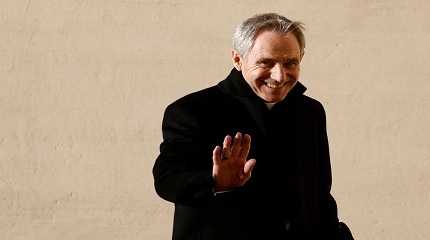
VATICAN CITY, June 15 (Reuters) - Pope Francis has ordered Archbishop Georg Gaenswein, the private secretary and long-time aide of the late Pope Benedict, to return to his native Germany by the end of the month without any new assignment, the Vatican said on Thursday.
A Vatican statement put an end speculation about what role Gaenswein, a powerful figure in the Vatican for more than a decade before Francis sidelined him after a personal falling out, would have in the Church.
Former Pope Benedict died on Dec. 31, nearly a decade after he resigned in 2013, the first pontiff to do so in 600 years.
Gaenswein is 66 and it is exceptionally unusual for someone of that relatively young age and rank not to have an assignment, giving the pope's decision a sense of banishment.
The two-line statement said Francis "had disposed" that the 66-year-old Gaenswein return to his diocese of Freiburg "for the time being".
Nearly all papal secretaries in the past have either been assigned to lead dioceses or made cardinals or given some other high-profile post. Gaenswein is nine years short of the normal retirement age of 75 for bishops.
He has met Francis several times in the past months about his future and there has been speculation in Catholic media that he was hoping to land a diplomatic assignment as nuncio, or ambassador, to a country.
Gaenswein declined to comment when contacted by Reuters on Thursday.
He was Benedict's personal secretary from 2003, when Benedict was still Cardinal Joseph Ratzinger, and remained at his side for nearly 20 years, nearly 10 of them after Benedict resigned.
In a book called "Nothing But The Truth - My Life Beside Benedict XVI" and sent to reporters by its publisher only hours after Benedict was buried on Jan. 5, Gaenswein rattled the Vatican by describing what he says were strains while two men wearing white lived within its walls.
Gaenswein and Francis fell out in 2020 when Gaenswein was at the centre of a messy episode concerning former Pope Benedict's role in a book about priestly celibacy that many saw as an attack on Francis' authority.




